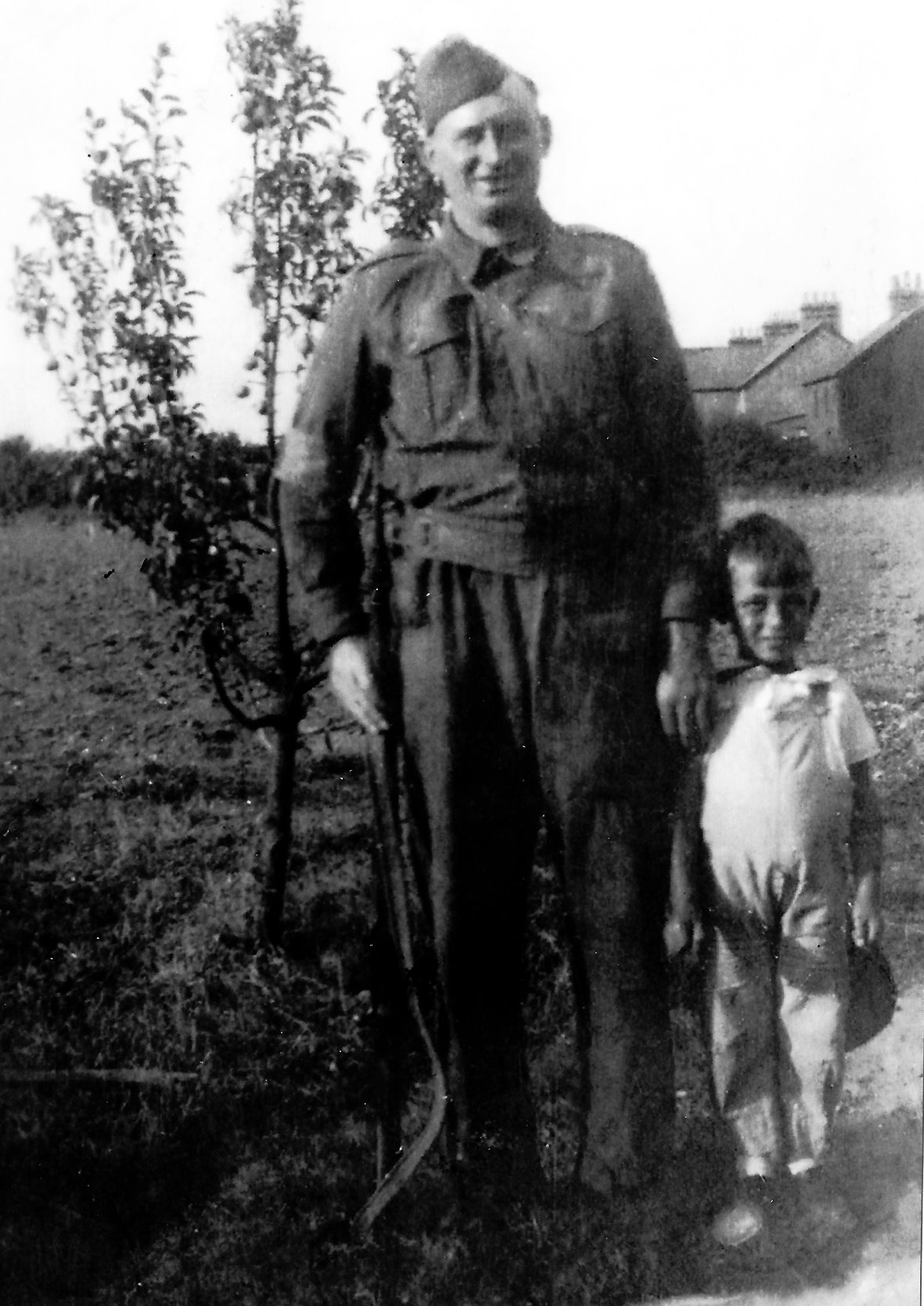| Unit or location | Role | Posted from | until |
|---|---|---|---|
| Tiptree Patrol | Patrol member | Unknown | 03 Dec 1944 |
Builder
C. 1942
Ernest's daughter, Diana Childs, told us this:
My father was 36 when the war started and because he was a builder, he was classed as being in a reserved occupation and was needed for repairs to and making safe buildings that had been bomb damaged. He also had to put up buildings in a hurry to house soldiers and airmen and was part of the team that built Messing Aerodrome. He put telegraph poles in large fields to stop the German planes from landing.
He joined the home guard and was recruited into the Commandos (as they were known then.) He was one of a group that went to the Isle of Wight to train. They had to see if they could infiltrate and take over an establishment which was held by the regular army. They were successful in doing so, much to the chagrin of the officer leading the regular army. My mother never knew where he went and it wasn't until after the war that he told us anything about what they got up to. I know that they had to build hidey-holes where they could be and surprise any enemy that might come along. I am not sure of the location: I think that it was Podd's Wood but my sister-in-law thinks it was Windmill Hill (both on the outskirts of Tiptree.) Dad and his mates dug a deep hole, not a difficult job for my father, who was used to digging wells by hand to provide drinking water for the houses he built. Mains water was quite late in coming to Tiptree. Once the hole was dug, a wooden covering was made and leaves were put on top to camouflage it. There were three of them that went down into the hole and my father covered the top and the three in the hole settled down to play cards by the light of a candle. After a little while, the candle burned very low and went out. They realised that they needed to get out of there quickly because of lack of oxygen. The exercise was supposed to last for an hour or two but the men did not reappear at the appointed rendezvous. My father went to the hidey hole and removed the covering to find that the men, their candle no longer alight, had fallen asleep. It was soon realised that the hole was not fit for purpose as there was no way of getting fresh air into it.
My father had a friend who was a plumber and also excluded from the forces because his was also a reserved occupation. At one point he was sent from his home in Kelvedon to Newcastle to put plumbing into ships. His landlady, in Newcastle, was astounded to learn from him that milk came from cows: she just thought it came from bottles! This man was called Harry Osborne and, after the war, he became a parish councillor for Kelvedon and was very interested in the history of Kelvedon. He was in the Commandos with dad and at one point they had to do a joint operation with volunteer medics. All the Commandos hid in various places and were told what their medical injury or problem was. Of course, they had to keep quiet in case they were discovered by the "enemy." Harry Osborne lay in a ditch all day and got a bit fed up because it was cold and wet. Nobody seemed to find him, so he wrote a note saying "Bled to death and gone home!"
Some time after the war, I think I could have been 7-9, dad was having a clear out in his office at home and came across a small booklet. It said something about gardening and I think it was in green lettering and it was just ordinary paper. I am not sure whether it was on the first page, as you opened it, or whether you had to turn a page or two before you came to the real contents of the booklet - photos of how to do unarmed combat, and presumably how to kill your assailant! I remember dad laughed and said that the "gardening" would not have fooled anyone and if it had fallen into the wrong hands, could have been useful to an enemy. It went on the bonfire! What a treasure it would be today. Are there still any about? Of course, as a small girl, I didn't realise how valuable that would be as an historical document.
Hope these few sketchy memories are of interest to you. I was born in January 1942, so there is very little that I remember, only those things that I have been told. Dad's nickname was "Kipper".
WO199/3389
Mrs Diana Childs
